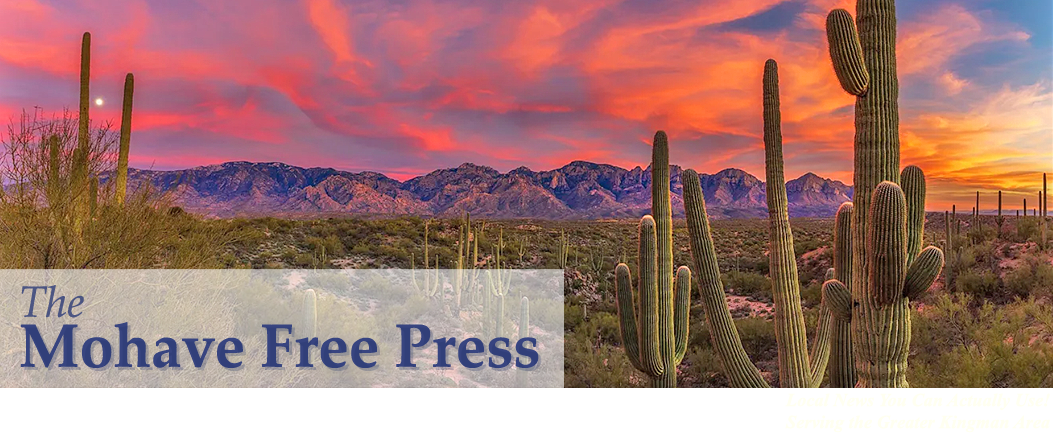RUMOR: Is Kingman running out of water or not?
TRUTH: Well, that depends on who you ask and what data they are citing, because any data modeling is dependent on the projected use numbers you input.
Recently, conflicting reports started circulating when a heated dispute unfolded between LD30 State Representative John Gillette and Mohave County Board of Supervisors Chairman Travis Lingenfelter over the management of the Hualapai Basin’s groundwater. The conflict centers on differing assessments of the aquifer’s water projections and the policies needed to ensure its sustainability.
The controversy began with Gillette’s recent Final Assessment of the Hualapai Basin Water Data Integrity, which claimed the aquifer could supply the region for 100–300 years, even under heavy usage. Gillette argued that data from Mohave County and the City of Kingman overstated risks to justify restrictive policies. In the assessment, Gillette wrote, “After continued research, legislative engagement, and review of both historical and current data, my original 2021 assessment of the Hualapai Basin water situation remains valid. The data presented by the City of Kingman and Mohave County remains suspect, with indications of overstatement used to drive political narratives and policy agendas.”
Gillette accused Lingenfelter of aligning with Democrat Governor Katie Hobbs and High Ground, LLC, a firm tied to the very liberal Walton Family Foundation and Environmental Defense Fund, to push policies that centralize water control under the state, potentially infringing on property rights and local control. In an email to AZ Free News, Rep. Gillette stated that Lingenfelter “has ‘cozied up’ with Governor Hobbs and High Ground, LLC., not by joining their party, but by aligning on a policy platform that places rural water in the hands of the Governor. He has advocated for several of the leftists’ water bills that trample the rights of property owners.” The County Board of Supervisors terminated their contract with lobbyist Nick Ponder of High Ground, LLC. earlier this year.
In a May 8th rebuttal letter, Lingenfelter struck back with, “Your letter unfortunately contains a series of flawed assumptions, technical inaccuracies, and mischaracterizations that misinform rather than advance the public dialogue around long-term rural groundwater sustainability in Mohave County.” He added, “Your letter asserts that data presented by Mohave County and the City of Kingman remains ‘suspect’ and ‘politically compromised.’ Such a characterization is categorically false and impugns the reputations of Mohave County, City of Kingman, and credentialed hydrologists at the ADWR and USGS and the public they serve.”
In a formal response to Lingenfelter’s accusations, Gillette wrote on May 16th, “While I welcome constructive dialogue, your letter reflects a degree of emotional overreach rather than a calm, scientific response to the concerns raised. Unfortunately, it reveals more about political defensiveness than about data transparency or hydrological best practice.” Rebutting criticism of his assessment’s findings Gillette stated, “The assessment I authored was reviewed by three independent scientific and policy bodies prior to publication. All concluded that the findings were as accurate as possible given available data. I welcome peer review. What I reject is politically motivated resistance to scrutiny. As further evidence of bias, it should be noted that the ‘comparison document’ you reference—submitted by your team only days after my final assessment—contains several confirmations of my position.”
Gillette also adressed Lingenfelter’s claims based on the U.S. Geological Survey MODFLOW-NWT model and its 75,586 adjustable parameters “Your confidence in the model would carry more weight if you supported my proposal to re-calibrate baseline figures using 15 new field test sites with controlled, non manipulated measurement inputs. This is the kind of ground-truth methodology science demands. Strangely, your rebuttal ignores this recommendation entirely.”
Gillette backs Republican-led legislation like SB 1221, which would restrict water use in stressed basins like Hualapai while granting users water rights certificates. He argues this approach fairly distributes conservation burdens. In the 2026 legislative session Gillette intends to to pursue “a stand-alone Hualapai Basin bill-developed outside of executive influence-that reflects the data as it exists, not as it is manipulated.”
Do you have a rumor you would like cleared up? Email us and we’ll see if we can.

